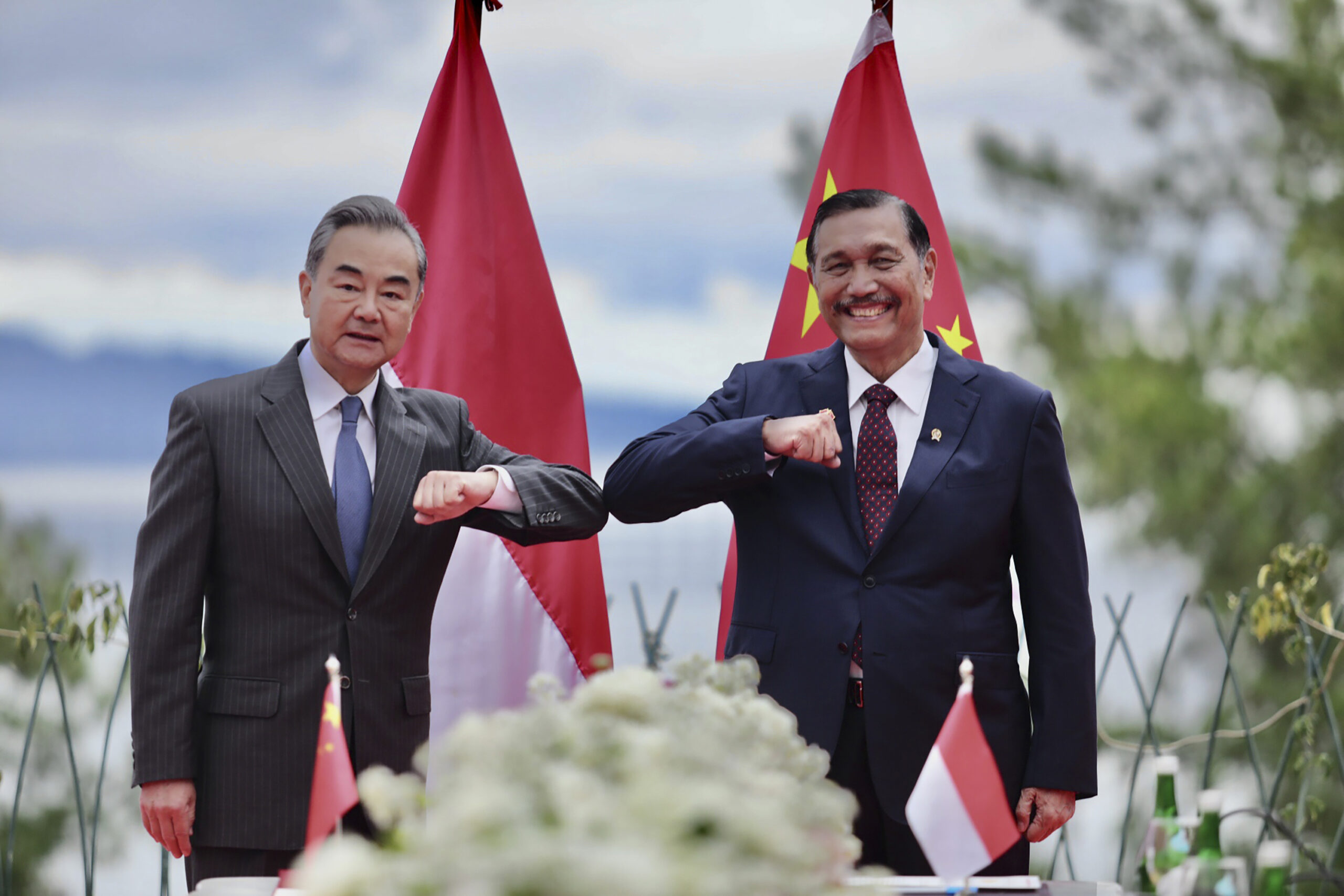Indonesia and China are proof that geographic connections do not always make friendly neighbours.
China’s increased political, military and economic activity in and around Indonesia in recent years has not been viewed favourably by the Indonesian people, a chilly reception with the potential to hurt relations between the countries.
Public views of China have worsened since 2011, based on a survey by the Australia-based Lowy Institute conducted in November and December involving 3,000 adults in 33 Indonesian provinces.
The survey shows that while 43% of Indonesians agree with the statement “China’s growth is good for Indonesia,” 60% strongly agree “Indonesia should join forces with other countries to limit China’s influence.” The Asian powerhouse also was deemed a threat during the next decade by 49% of Indonesian respondents.
This plummeting view of China among Indonesians is not surprising considering disagreements over the South China Sea, the economic impact of the Belt and Road Initiative and treatment of the ethnic Uyghur population in China’s Xinjiang region.
Relations between Jakarta and Beijing have expanded significantly in recent years. The ties have not only been dominated by trade and investments, in which China is Indonesia’s most crucial partner, but also in social, cultural and medical spheres. China is currently the biggest vaccine supplier to Indonesia.

This strong cooperation has made some analysts believe that Indonesia has increasingly become dependent on China. But the closeness between China and Indonesia has been accompanied by reservations about China’s growing penetration in the Archipelago.
The United States is pursuing diplomatic efforts aimed at reducing China’s influence throughout Asia and the Pacific. The Indo-Pacific Economic Framework, a trade bloc of the U.S. and 12 other nations, launched on 23 May with Southeast Asian countries including Brunei, Malaysia, the Philippines, Singapore, Thailand and Vietnam. Indonesia also signed on.
Indonesia’s growing aversion stems in large part from China’s increasingly confrontational behaviour in the South China Sea. Geographically, Indonesia is directly adjacent to the sea, placing the island nation at the vortex of the conflict that has also drawn in other regional countries taking exception to China’s expanded maritime claims.
Indonesia has the right to claim a small portion of the South China Sea area due to the 321-kilometre (200-mile) radius marking its exclusive economic zone (EEZ) calculated from the coastline of Natuna Island in the northern Riau Islands province. The regulatory policy of the Indonesian EEZ is in accordance with the United Nations Convention on the Law of the Sea (UNCLOS).
But the EEZ line drawn based on Natuna Island clashes with China’s Nine Dash Line claim, which claims ownership of 90% of the South China Sea area. ASEAN countries including Brunei, Malaysia, Vietnam, the Philippines and Indonesia have firmly rejected China’s unilateral claim and prioritised division of the South China Sea as regulated by the UNCLOS.
The conflict recently has intensified with China asserting its claim to the Indonesian part of the South China Sea. In December, China sent a letter asking Indonesia to halt oil and gas drilling activities in the Natuna area because China considered this an encroachment on its territory. The Chinese ship Haiyang Dizhi 10 began monitoring the area around Indonesia’s energy exploration block in August.
Undoubtedly, the South China Sea disagreement has boosted the perception of a ‘China threat’ among Indonesians, fostering beliefs that the larger nation to the north aims to dominate Indonesia.
Some Indonesians also view Chinese investments in their country as a form of neo-colonialism. There are increased concerns about job opportunities among local residents and perceptions of preferential treatment for Chinese businesses by the Indonesian government.
This includes amendments in labour regulations to ease the entry of Chinese workers to Indonesia. During the Covid-19 pandemic, Chinese workers were granted entry despite lockdown measures. Chinese nickel smelter investors also have received benefits ranging from tax cuts to reduced import fees on capital equipment.
These business developments have created feelings of injustice among Indonesians.
There also is fear of potential debt traps. Indonesia’s central bank recently revealed $21 billion of debt to China since June 2021. AidData, a U.S.-based research institute, released data regarding countries that may go into debt to China over incessant infrastructure development in the ambitious Belt and Road Initiative. Among those, AidData cited Indonesia as having $17 billion in hidden debt.
Indonesia also has decided to budget funds for problematic Chinese projects, including a Jakarta to Bandung high-speed rail project launched in cooperation with Belt and Road in 2015. The spending decision came despite the project’s cost rising to $8 billion. Many in Indonesia fear this debt to China will put the government at risk of default.

China’s unabated repression of Uyghurs in the Xinjiang autonomous region is another cause for disillusionment in Indonesia. Human rights organisations such as Amnesty International have reported Beijing stepped up its inhumane treatment of Uyghurs in recent years through campaigns of mass detention, political indoctrination and forced assimilation.
Beijing’s brutal treatment of Uyghurs has attracted the attention of the international community, including Indonesian Muslims who have condemned China’s Xinjiang policy.
Amnesty International was among nearly 200 organisations to sign an open letter in March urging UN High Commissioner Michelle Bachelet to release a promised report on Xinjiang. Amnesty International also issued an expansive report of its own in June 2021 detailing what the organisation said was evidence of “crimes against humanity” against Uyghurs in Xinjiang. The allegations included “imprisonment or other severe deprivation of physical liberty in violation of fundamental rules of international law; torture; and persecution.”
Demonstrations in Indonesia have called on the government to sever ties with China if the latter persists with the harsh policies. Muhammadiyah, a large Indonesian Muslim NGO, issued an open letter in December 2018 condemning Beijing’s treatment of Uyghurs and asking the Chinese government for an explanation. Nahdlatul Ulama, another Islamic organisation, did the same.
While China has employed faith diplomacy towards Indonesian Muslims to co-opt narratives about activity in Xinjiang, the abuse has stoked anti-Chinese sentiment, which is becoming prevalent in Indonesian society.
While China’s political and economic footholds expand in Indonesia, negative perceptions of China have increased. Although these complaints from Indonesians may not end the relationship between the governments, the growing animosity toward China could create an unpleasant environment for Beijing in future dealings with Jakarta. This may drive China to pursue extra soft-power efforts to maintain its positive standing.
The certainty is that many Indonesians are hopeful the public outcry could be a wakeup call for their government to end preferential treatment towards Beijing and for China to amend some foreign and domestic action, including the most contentious policies on the treatment of Uyghurs and aggression in the South China Sea.
Muhammad Zulfikar Rakhmat is an associate professor and director of the Institute for Global and Strategic Studies at Universitas Islam Indonesia.


